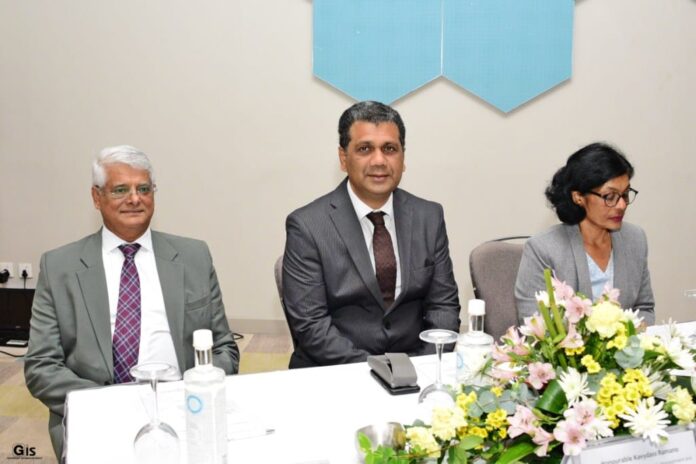Mauritius: A validation workshop focussing on the report on the Human Resource Development Strategy and Capacity Development Plans, which have been developed under the Institutional Gaps and Needs Assessment (IGNA) project to implement the provisions of the Climate Change Act 2020, opened this morning, at the Hennessy Park Hotel in Ebène.
The Minister of Environment, Solid Waste Management and Climate Change, Kavydass Ramano, was present.
In his address, the Environment Minister underlined that climate change is a cross-cutting issue requiring urgent and concrete actions from every segment of society. He added that his Ministry had adopted a participatory approach for all its climate change endeavours, integrating all community groups and segments of society.
He expressed conviction that it is only through a collective approach that we would be able to contribute to help address the challenges posed by climate change.
It is against this background that the Act has provided for public and private institutions’ duties to include mainstreaming climate change into sectoral strategies, action plans and other policies and report on sectoral greenhouse gas emissions for a national greenhouse gas inventory, he added.
Furthermore, the Minister highlighted that the Government enacted the Climate Change Act to comply with the commitments taken by the Republic of Mauritius under the United Nations Framework Convention on Climate Change and the Paris Agreement in our combat against climate change.
The aim of this piece of legislation, he emphasised, would help in better preparedness of the present and future generations against the worsening climatic conditions, which unfortunately would be further aggravated with the forecasted 1.5 degree Celsius temperature rise within the next decade.
Minister Ramano also informed that the legal framework provides for a reporting mechanism on climate change mitigation and adaptation actions for both the public and the private sector; and would allow for the strengthening of our institutional framework so as to allow for efficient delivery in matters pertaining to climate change.
The Minister pointed out that provisions have been made for undertaking various measures, including the setting up of a dedicated Department of Climate Change to, inter alia, develop policies, programmes and action plans relating to climate change; the formulation of a National Climate Change Adaptation Strategy and Action Plan for key adaptation sectors and a National Climate Change Mitigation Strategy and Action Plan for key mitigation sectors, amongst others.
Speaking about the Climate Change Act of 2020, the Environment Minister said that it demonstrates Government’s determination to ensure the well-being of our fellow citizens, the protection of our infrastructure and the smooth running of all our socio-economic sectors and outlines institutional and legislative structure to allow a holistic and transversal management.
According to him, through this legislative framework, the country can strengthen its resilience to the impacts of climate change and move towards a green economy.
In 2021, further to the coming into force of the Climate Change Act 2020, the Ministry of Environment, Solid Waste Management and Climate Change sought technical assistance from the European Union under the 11th European Development Fund Technical Cooperation Facility, to the tune of Euro 104, 000, for the implementation of the provisions of the Act.
The main purpose of this project is to provide recommendations on the required institutional arrangement and empowerment of concerned institutions in Mauritius and Rodrigues in order to mainstream climate change in their respective mandates, which is in line with the objective of the Climate Change Act 2020.
